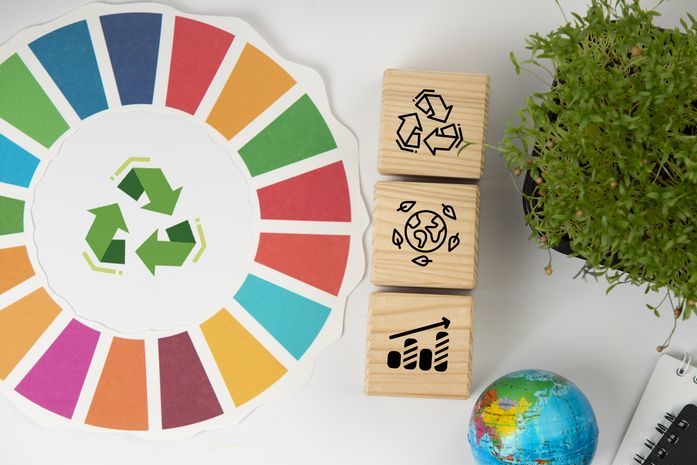What Role Can the Crime of Ecocide Play in the Corporate Context?
The Rise of Ecocide
Prompted by frustration over climate inaction and unchecked extractivism, the campaign to add ecocide to the mandate of the International Criminal Court (ICC) as the 5th international crime has gained significant momentum in recent years.
Although the concept of ‘ecocide’ first emerged as a descriptor for environmental war crimes in the 1970s, contemporary formulations have focused more (but not exclusively) on environmental destruction perpetrated in times of peace. The most popular definition is currently that put forward by an Independent Expert Panel of international criminal law and environmental law experts, convened by the Stop Ecocide International Foundation in 2021. Their proposed crime: ‘unlawful or wanton acts committed with knowledge that there is a substantial likelihood of severe and either widespread or long-term damage to the environment being caused by those acts’, draws on existing international criminal legal language, while extending the prospect of environmental criminality to times of peace.
The Expert Panel’s definition has since been taken up by Vanuatu, who in September 2024 submitted a formal proposal for an amendment to the ICC’s Statute, following their initial proposal that such a crime be considered at the ICC’s Assembly of State Parties in 2019. Developments are not limited to the international sphere; a wave of ecocide bills followed on the heels of the Panel’s definition (e.g. Spain (Catalunya), Mexico, The Netherlands, Italy, Scotland and England and Wales, Brazil) with varying levels of success at the time of writing. In Europe, the 2024 EU ‘Directive on the Protection of the Environment through Criminal Law’ and 2025 Council of Europe’s Convention on the Protection of the Environment through Criminal Law acknowledge the growing momentum behind the ecocide campaign, and, more substantively, require States to criminalise conduct comparable to ecocide. Belgium has already done so, approving an ecocide crime in 2024, while France has introduced a ‘Climate and Resilience Law,’ introducing a qualified ecocide offence to the 2021 French Environmental Code.
In light of this growing momentum, in this blog I consider the potential role of ecocide’s criminalisation in regulating business activities and their environmental impacts. I focus on the concept of individual deterrence, a frequent justification offered for ecocide’s criminalisation. Drawing on online statements from ecocide activists alongside green criminology scholarship, the following sections outline and analyse this justification, considering the barriers that might stand in the way of ecocide as a tool of corporate change.
Targeting Individuals, Changing Corporations
By far the most frequent justification offered for ecocide’s criminalisation, whether at the international or domestic level, is its deterrent potential. Advocates emphasise the necessity of criminalisation, considering the limited enforcement practices and limitations of existing environmental law:
A standalone crime of ecocide is needed urgently… in recognition that international agreements to protect the environment that are without a legally enforceable deterrent are not delivering the urgent protections needed.
Often, this rhetoric specifically highlights the potential for ecocide’s criminalisation to deter those in positions of power, such as corporate decision-makers:
Imaging sitting in the board room to discuss a fossil fuel project and the legal team says there’s a risk of ecocide – it has a high deterrent value. (Dialogue Earth).
This emphasis on the deterrence of corporate actors resonates with green criminology literature that has long argued for a re-evaluation of who and what counts as ‘criminal’ when it comes to environmental harm. Green criminologists have argued that deterrence through criminal law may be particularly impactful on corporate actors, who may be unwilling to risk the social and reputational costs of prosecution.
Notably, there has never been a crime like ecocide before, i.e., an international crime that puts people in positions of corporate power at risk of prosecution and imprisonment for business decisions that impact the environment. For ecocide’s advocates, the possibility of severe sanctions is a core part of the deterrent narrative:
Only by imposing significant criminal sanctions on those who damage our planet can we begin to prevent the catastrophe they are on their way to causing. (The Ecologist).
This framing undoubtedly resonates with green criminological literature that has highlighted the value of severe sanctions as a form of deterrence. Yet the following section turns to the barriers to effective deterrence, arguing that there is a need for greater nuance regarding the claims of ecocide’s deterrent potential.
Three Barriers to Effective Deterrence
The first, most obvious barrier to deterrence is the long road to the adoption of an amendment to the ICC’s Statute. An amendment requires at least a two third majority of the ICC’s States Parties, with a final text of the proposed amendment requiring discussion and State Party agreement. While a final discussion could take place at a ‘Crime Review Conference’, this process has rarely been used. Alternatively, a ‘Working Group on Amendments’ could be tasked with evaluating a proposed amendment. This can be a long process; it took two decades for the crime of aggression to be adopted despite early agreement regarding its definition. Any proposal will face intense scrutiny, with unofficial and official channels of discussion creating space for political and corporate interests to influence the process and dilute any eventual definition.
If ecocide is criminalised, barriers remain. The second is that the evidence supporting criminalisation’s deterrent effects is mixed and inconclusive. In the context of international crime, some have argued that criminalisation has deterred atrocity perpetration, but others have questioned whether this is or could ever be the case. The research on the connections between retributive and preventative justice is also inconclusive, with some criminological research problematising claims that severe punishment increases deterrence, including in the context of environmental crime. In the context of domestic criminal law, the assumption that potential perpetrators will rationally engage in cost-benefit analyses that can be influenced by the threat of criminal sanction has been substantially critiqued.
As noted above, advocates have emphasised the likelihood that corporate decision-makers will engage in cost-benefit analyses. Yet, research into the prevention of crimes of the powerful has also found little evidence of criminal law’s deterrent effects. Critics of ecocide highlight the various ways in which corporate actors can neutralise and offset accusations of criminality, suggesting that their money, reputation and power will limit deterrence, rather than enhance it. With the evidence regarding deterrence in environmental crime, crimes of the powerful, and international criminal law all relatively inconclusive, there is reason to be cautious about over-claiming ecocide’s potential deterrent effect.
The third barrier is structural: a focus on individual criminality risks over-simplifying ecocide perpetration. Green criminology literature has emphasised the slow, structural, and systematic ways in which ecocide is perpetrated, with ecocidal acts and omission understood as deeply intertwined with the capitalist ‘treadmill of production.’ This reality stands in stark contrast to ecocide campaigns, which emphasise ‘unlawfulness’ and acts which are characterised by their abnormality and direct links to spectacular harm, perpetrated with intent or reckless disregard for the harm caused.
Critical scholarship argues that criminal law’s emphasis on individual perpetration is ill-suited to the ‘slow violence’ and complexity of environmental destruction. For deterrence to work at all, there must be some likelihood of being held accountable, meaning preventative goals may be undermined by the difficulties in attributing blame to individual persons (not to mention the ICC’s low conviction rate). Furthermore, criminal law exists within, not separate to, a broader economic and political context. Currently, both are dominated by neoliberal capitalism and extractivism, both of which facilitate and necessitate environmental destruction. Criminalising ecocide is therefore arguably limited in its transformative potential in the absence of more fundamental shifts in political economic approaches.
A Call for Legal Humility
Ecocide has clear rhetorical force, as evidenced by its ability to mobilise a range of constituencies around the world. There above highlights uncertainties and barriers surrounding the impact of criminalisation, which is not to say that no justification exists.
Yet, the institutional channels through which criminal law operates are narrow, contingent and politically mediated. It seems clear that ecocide’s public appeal as a label commensurate with the environmental crises may outweigh the practical impact of its criminalisation by a significant margin. I conclude, therefore, by highlighting the importance of what Kieran McEvoy has termed ‘legal humility.’ Legal humility cautions against grand promises, and repositions criminal justice as one tool among many, to be used sparingly and alongside a wider range of non-legal processes. In the context of ecocide, legal humility necessitates greater transparency about the uncertainties and limitations of criminalisation. Such a step might involve reframing criminalisation not as the ‘only way’ but as one contribution to a spectrum of interventions designed to change corporate behaviour, which might also encompass civil and administrative enforcement, corporate governance and due-diligence regimes, reparative and community-led initiatives, Indigenous law and stewardship, and transnational environmental governance. Framed in this way, the promise of ecocide law presents not a master-key to changing corporate conduct, but a limited, carefully targeted contribution to a broader transformation in how polities value and protect the natural world.

Dr Rachel Killean is a Senior Lecturer in Sydney Law School. Dr Killean’s multidisciplinary research centres responses to violence with a focus on transitional justice, victims’ rights, and environmental harm.
